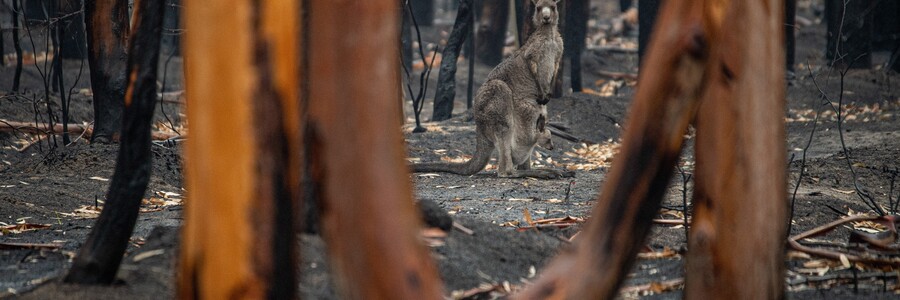Consequences of global warming and its risks
Human-induced climate change and its consequences are causing widespread negative impacts on nature and humans. Increasing heat waves, droughts and floods are already causing mass deaths of plants and animals and are giving us humans a hard time. Due to climate change, weather extremes are occurring more and more frequently at the same time and exacerbating each other, so that their consequences are becoming increasingly difficult to cope with. Millions of people are already facing acute food and water insecurity - even though the consequences of global warming will intensify.
According to the report, between 3.3 and 3.6 billion people worldwide are affected by negative impacts associated with climate change - almost half of humanity. The lives of these people will be threatened in the future by rising temperatures, rising sea levels or intensifying conflicts associated with climate change impacts. Another quarter of humanity must expect at least temporary drastic changes due to global warming, according to the scientists of the Intergovernmental Panel on Climate Change.
Hotspots of negative consequences are to be found in particular in South America, Africa and Asia. The reasons for this are the prevailing living conditions there, such as high poverty, inequality, limited access to basic resources such as clean water, and often unsustainable land and sea use. The fact that climate disasters are already harming poor countries in particular is already a bitter reality, as a recently published study showed. For Europe, the report sees four main risks: In addition to life-threatening heat waves and droughts, Europe will also be increasingly affected by water shortages or floods in the future, according to the forecasts.
Measures to adapt to climate change
According to the report, in order to be able to adapt to the consequences of climate change, a change in agriculture, forestry, health care and urban planning must take place soon. More than half of the world's population lives in cities, where critical infrastructure could be threatened by storms, droughts or floods, among other things. According to the report, countries around the world have so far done too little to reduce the risk in this direction. There is a considerable gap between the measures taken so far and those needed to tackle the climate crisis. Green buildings and green urban areas, the use of renewable energies or sustainable transport systems are just a few measures that could be implemented here.
Protecting nature in the fight against climate change
According to the report, reducing CO2 emissions alone will no longer help to defy climate change. Rather, the protection of nature and its renaturation must also be at the centre of efforts. According to the report, about 30 to 50 percent of the land and ocean areas should no longer be used intensively and thus returned to nature. The reason for this is that healthy ecosystems are more resistant to climate change. In view of climate change, it is therefore all the more important to restore impaired ecosystems and protect those that are still intact.
Source:
IPCC: Climate Change 2022: Impacts, Adaptation and Vulnerability

